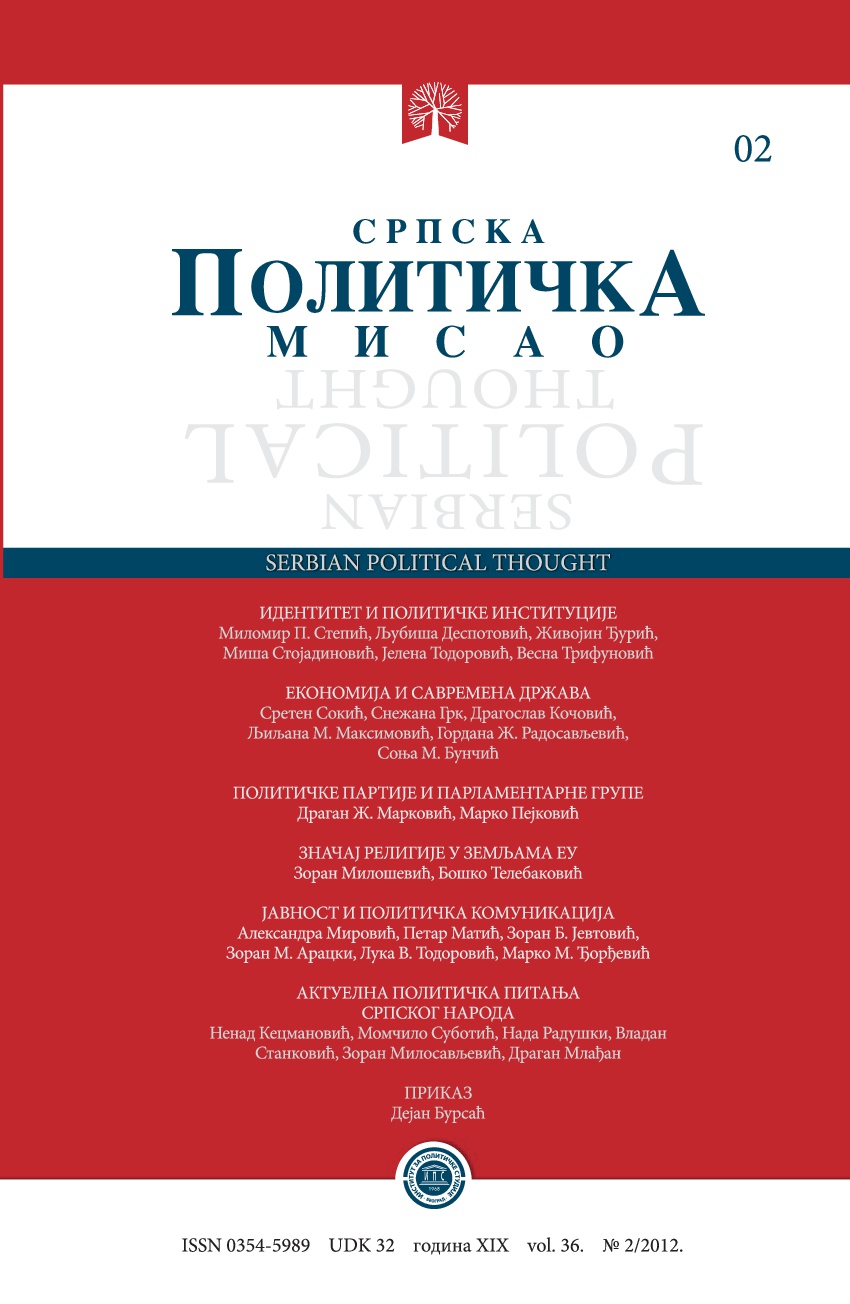Квантитативна анализа парламентарних група
The Quantitative Analysis of Parliamentary Party Groups
Author(s): Marko PejkovićSubject(s): Government/Political systems, Comparative politics, Social development
Published by: Институт за политичке студије
Keywords: parliamentary party groups; parliament; political parties; party unity; party discipline; party cohesion; Parliamentary party group Development Index;
Summary/Abstract: The paper is divided into four parts. The first part theoretically discusses the relationship between the free mandate and the party unity and in this sense this part is an exemption from the others, almost completely quantitative- empirical parts of the paper. Nevertheless, this introductory step was necessary in order to better understand the subject which is discussed in the second part of the paper – parliamentary party group cohesiveness during plenary vote, which stems directly from the fact whether and to what extent MPs balance their double role as representatives of a people and their parties at the same time. The third part examines whether there are statistically significant correlations between the average size or number of party groups and the number of legislative proposals initiated solely from the parliament, on a basis from the data collected from Germany, Belgium, Spain, Portugal, Italy, Hungary and Serbia. In the fourth part the author offers original and unique formula - Parliamentary party group Development Index. The author holds that this index could substantially help, via matching with other parameters, to measure not only party group performances or impacts, but that of parliament as well, as a whole unit within political system.
Journal: Српска политичка мисао
- Issue Year: 2012
- Issue No: 2
- Page Range: 235-255
- Page Count: 21
- Language: Serbian

